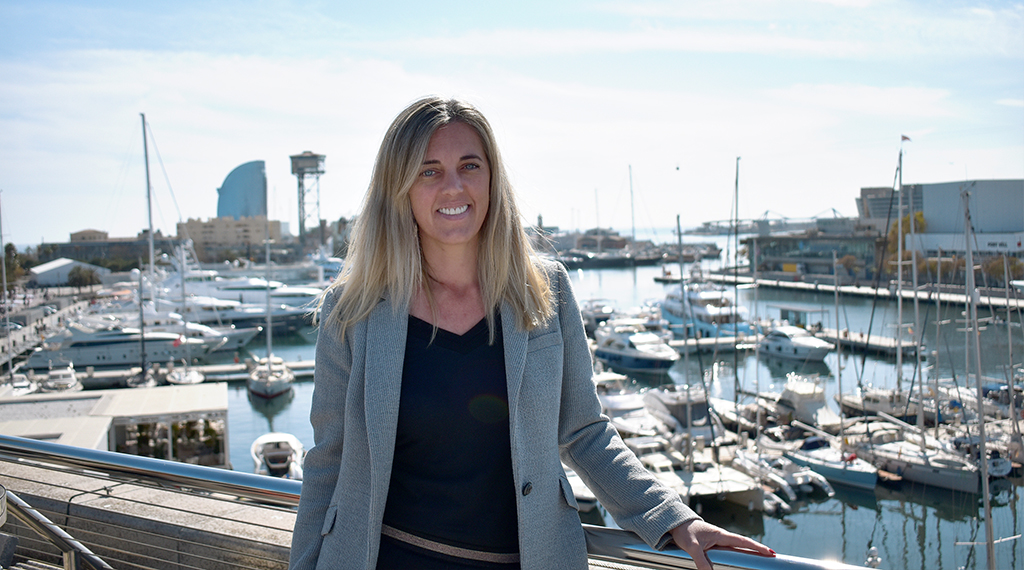Stories
“There’s a shortage of female role models”
Deliberry's Gemma Sorigué on the need for more women leaders and trends in e-commerce
March 13, 2019

“Up to now women have not been educated to believe that they can. Though they now occupy intermediate positions, it will still take a few years before we see a generation of women truly integrated into positions of power.”
The numbers support Gemma Sorigué (PDG ‘14), CEO and co-founder of Deliberry, an online grocery delivery service in Spain. According to the 5th annual report Women on the Boards of IBEX-35 Companies, produced by Atrevia and IESE, barely 20% of Spain’s top publicly traded companies have women on their boards of directors, and only 5% of companies on the Fortune 500 list are led by women.
“There’s a shortage of female role models,” says Sorigué, adding that her own role models are her mother and sisters, who are entrepreneurs and executives.
With more than 15 years’ experience in e-commerce, Sorigué has held management positions in companies such as Atrápalo, Emagister and LetsBonus, in addition to Deliberry. Her success has led to her inclusion on the IESE 40Under40 list.
“There’s also a shortage of many success stories,” she says. “And if in some of these cases, work-life balance has not been possible or has had to be sacrificed, they become negative examples.” Maternity continues to be “a barrier to a woman’s career, and will only stop being one the day that maternity/paternity leave is obligatory and identical for both,” she says.
The entrepreneur believes that these issues require a higher profile: “It’s necessary to create women’s lobbies, pressure groups, that promote the role of women in the labor force.” The equation must include men, who must be aware that they are “part of the change, and very important.”
More women in upper management can only be beneficial for the business world: “I believe that women have empathy and some very powerful social skills, developed throughout history, which is an advantage when it comes to managing people and leading long-lasting, motivated and high-performing teams.”
From obstacles to trends
A long career in e-commerce gives Sorigué a unique perspective, enabling her to analyze with precision the current and future state of the sector: “The consumer goods category has been a latecomer and slow to online, which is difficult to understand in a sector that’s so important and has so many recurring purchases.”
However, with the entrance of Amazon and the investments big retailers are making, online channels have become crucial to the development of the sector, and where the most important trends are emerging. Sorigué cites the consumer experience as an example: “It has to be easy, intuitive… It must be an easier process than popping down to the corner supermarket.”
“It’s important for technology to help me in my day-to-day, offering assistance, for example, in thinking about weekly menus if I have a family with children, or helping me stick to a diet, filtering for me the products that are appropriate, and also recommending new products according to my tastes if I’m a user who’s open to experimenting.”
For this reason, there will be more and more technology involving voice recognition, to establish a spoken dialogue with the web that’s more convenient and intuitive, and image recognition, which allows consumers to add products to their cart with photos, or to organize a purchase around the image of a recipe.
This is not an easy challenge, but is one the sector is addressing with artificial intelligence: “Nowadays, using algorithms that study the behavior of regular clients, we can understand their needs much better, to the point that when someone enters the platform, we already have an idea about what they want to buy, so we can offer them what they need.”
Another of the biggest trends affects logistics. The number of delivery vehicles is surging in large cities, with the environmental impact that this represents. For this reason, industry and governments are searching for more sustainable models, such as using electric vehicles. “Certainly, in the future, robotics will also play an important part in product delivery,” Sorigué says. The capacity to analyze large volumes of data allows suppliers to rationalize trips by better predicting demand by the zone of the city, and by generating intelligent routes and supply systems.
Sorigué’s time at IESE was, she says, very beneficial to her career: “In the PDG I didn’t just acquire a better strategic vision. It also helped me in many other areas, such as for example creating a strong contact network. And not just with a view to the future: during the course, you feed on the talent of the people around you, both colleagues and professors.”